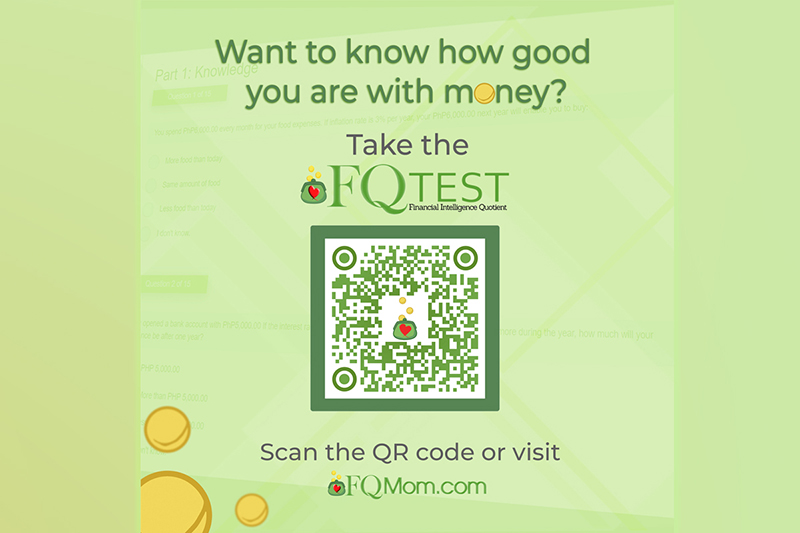What are your remarkable money and life lessons from COVID-19 crisis?

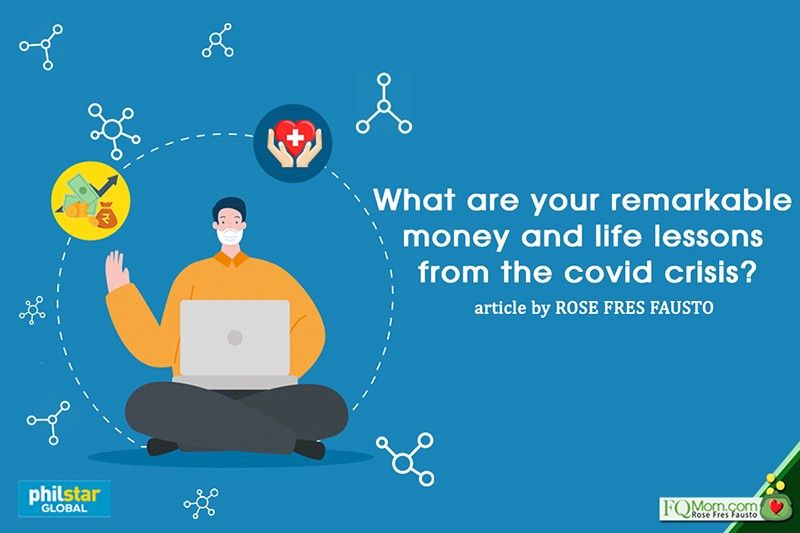
We’re now over a year into the COVID-19 pandemic and nobody knows when this will end. For the meantime, we cannot allow ourselves to be in an unending panic mode, lest we compromise our immune system, our best defense against the virus. To help boost our immune system, let’s make sense of what’s happening now and articulate some important money and life lessons we have learned from this pandemic.
1. You can never be too careful during times like this. Despite our family protocol to safeguard ourselves from the virus, it managed to infect one of my sons, who also infected one brother. Fortunately, because of their young age and good health conditions, they were able to recover from COVID-19 without need for hospitalization.
When we reviewed what transpired, we were able to see a loophole in our protocol that could have avoided the second infection.
After recovery, we should not only disinfect our isolation rooms and other parts of the house, but also our psychological spaces. No matter how mild their symptoms were, we saw the need to have a family Psychological First Aid (PSA) in order to thresh out all our emotions. It is only after we process all our unexpressed and over-expressed anger, fear, sadness, etc. that we can to move on to a healthier plane. True recovery involves both physical and mental health recovery.
2. A crisis is an exaggerator. Do you notice how some of the problems that you already had but were not that obvious just came to fore when the pandemic happened?
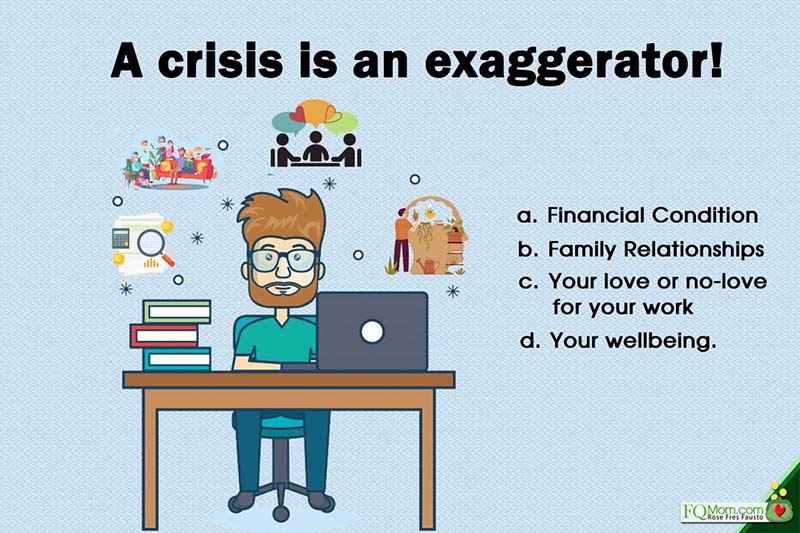
a. Financial condition. All the financial problems such as mismanaged cashflows (expenses larger than income, too much debt, etc.) that you managed to ignore prior to the pandemic are now screaming out loud. That emergency fund that you managed or failed to set aside makes the difference of heaven or hell.
b. Family relationships. All those unspoken sama ng loob (hurts) for each other that you used to avoid talking about can longer be avoided because you are now together 24/7.
c. Your love or no-love for your work. Now that you’re working from home and your boss is no longer watching over you, you can see more clearly if you love your work or hate it.
d. Your well-being. Now that you are “with yourself” more often and some distractions have been taken away, you can no longer run away from whatever is bothering you. On the other hand, if you are okay spending more time with yourself and actually feeling great, you can appreciate yourself more and be more grateful with what you have.
3. There are so many things we can do without. Personally, I did not buy a single clothing item – no new shoes, bags, clothes, accessories and I’m fine. Although I am craving for a full body massage, I realize I can manage without. How about you, what are those things that you thought were essentials but turn out not to be so?
4. Diversification is important. Yup and this is not only applicable to your investments (i.e. proper asset allocation), but also to your revenue sources. Inasmuch as you should not put all your eggs in one basket, you should also make sure that your eggs don’t come from just one chicken!
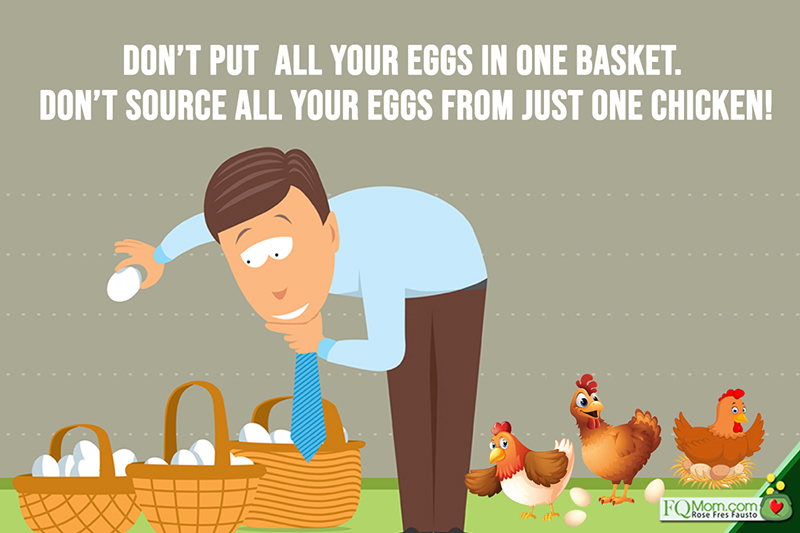
5. Insurance is a necessary expense. In order to avoid wiping out all your savings, make sure you have sufficient coverage for untimely demise, major illness, and other emergencies.
6. Debt can drag you down. As discussed in FQ Book 1 Chapter 7, debt is a double-edged sword – it can bring you both benefit and damage. A debt transaction presupposes a positive future. It is a human invention that allows economic activity whose funding is not limited to the amount that we have. For example, you can put up a business and fund it with a loan from the bank. The borrower and lender agree on a loan transaction because of a common expectation of positive cashflows from the business. In good times, the borrower is able to make use of cash that he doesn’t own yet, make it grow and pay back his loan. The lender is able to collect his cash and earn rent on it in the form of interest. Unfortunately, in times of crisis, the assumption of a positive cashflow is gone, and things come tumbling down, leaving highly leveraged companies and individuals losing their shirts.
7. Zoom out and do your thing. After over a year with no clear solution to our problem, it is easy to be disheartened and just lose hope. It may be a good idea to read up on the global crises that we have experienced so we can remind ourselves that this too shall pass. And let’s use this chance to really figure out what we want to do in our life. Let this be our opportunity to each find our ikigai (the Japanese philosophy that guides us to what we should be doing – the intersection of that which are fond of, good at, paid for, and what the world needs). Let’s figure out our ikigai and work on it with gusto as if we were all in our twenties!
8. Live each day as if it were your last. Right now, I am disheartened losing friends and acquaintances due to COVID-19. There is a big difference when you see cold statistics go up compared to receiving news of death and infections from the people you actually know and care about. You know exactly what dreams they have once they retire, you know their contribution to the world and what more they could give to make this world a better place, and you still look forward to seeing them again after the pandemic. But geez! Life can just be snatched out from anyone of us.
The biggest lesson from this pandemic is really quite paradoxical. It is the combination of numbers 7 and 8. It’s both living your life as if it were your last and working enthusiastically as if you had all the time and energy. It is answering the question, “If you knew that this would be your last day, what would you do?” And most of the time, the answer is “I’ll be doing what I love to do with the people I love.”
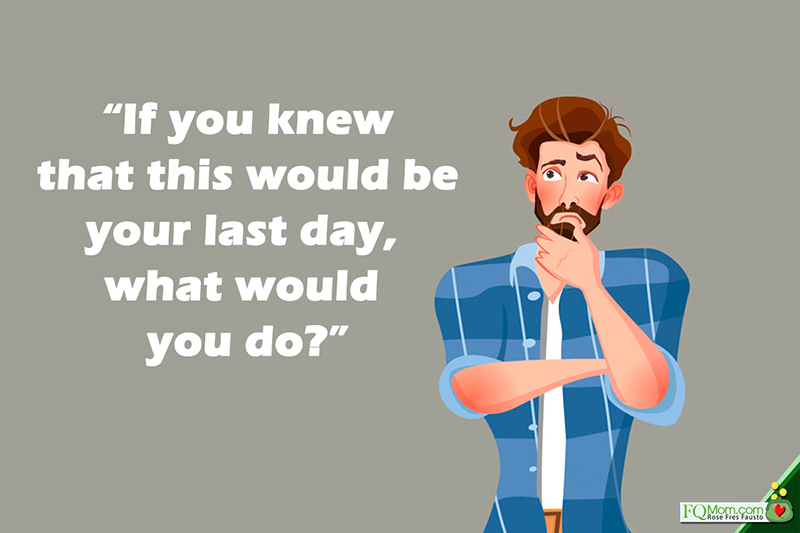
How about you, what are your biggest money and life lessons from this COVID-19 crisis? Join our discussion of this topic tomorrow live on Kumu or Facebook page of FQ Mom and Knowledge Channel. I’d love to hear and learn from your answers too.
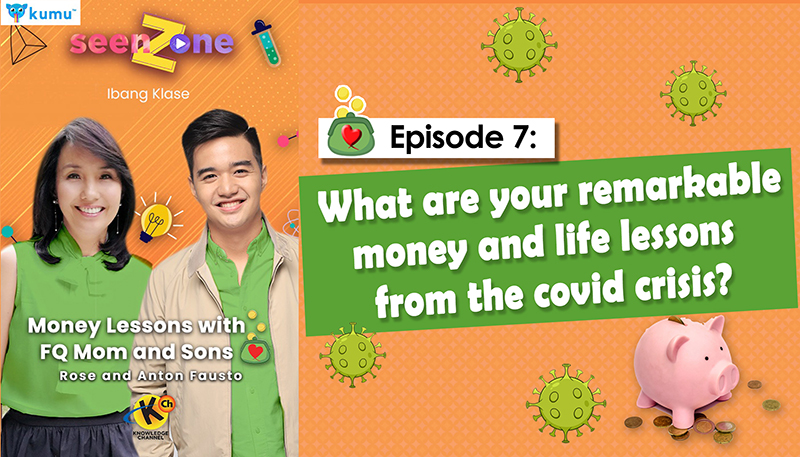
ANNOUNCEMENTS
1. I’ll be giving a talk to the employees of HSBC on April 28, 2021 at 4 p.m. We will discuss “Why Financial Education Alone Does Not Work!”. If you’re from HSBC, I look forward to seeing you there. If you’re company is interested in having this discussion with me, please email us at FQTeam@FQMom.com.
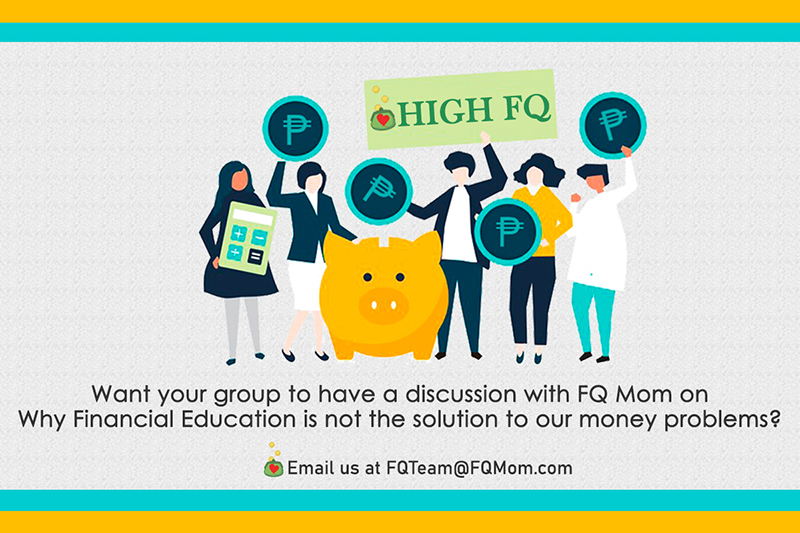
2. Our third installment for our FQ Workshop with Shell is happening on April 30, 2021. If you want your employees to have this in-depth workshop, please email us at FQTeam@FQMom.com.
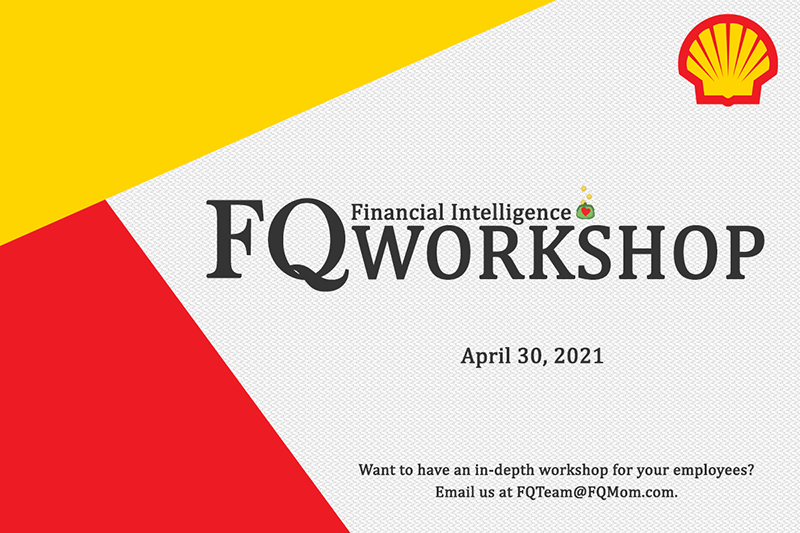
3. To learn more about your money behavior, get your copy of FQ Book 2. Get copies for your loved ones too. The principles you will learn from here are not only applicable in your financial life but all the other important aspects of your life. https://fqmom.com/bookstore/
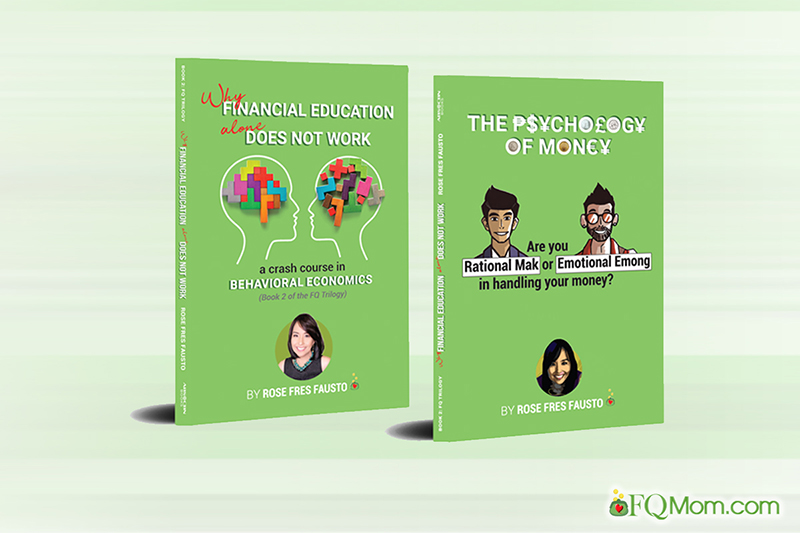
To know more about FQ Book 2, watch this short video .
4. ThursDate! To add some practical knowledge while having kulit fun online, please make it a habit to join us every Thursday at 11 a.m. on Kumu. I’d appreciate if you come early at 10:55 a.m. when we go live!
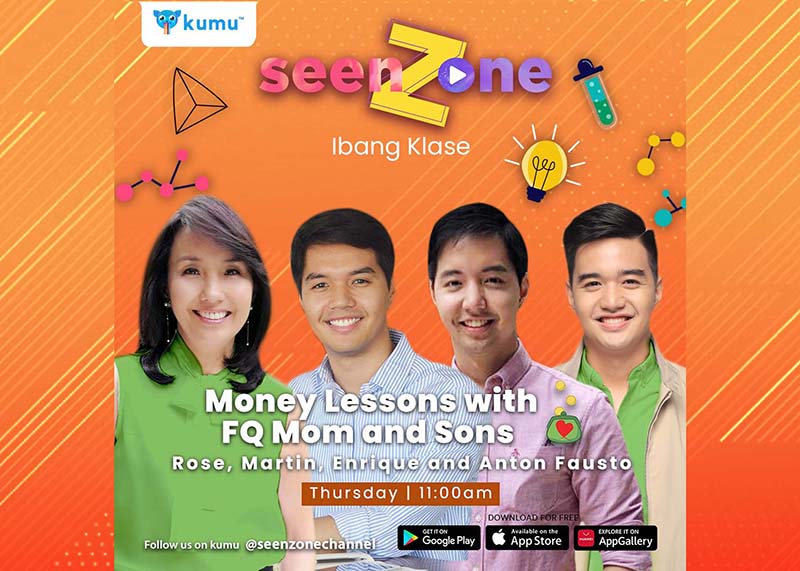
5. How good are you with money? Do you want to know your FQ score? Take the FQ test and get hold of your finances now. Scan the QR code or click the link http://fqmom.com/dev-fqtest/app/#/questionnaire.
